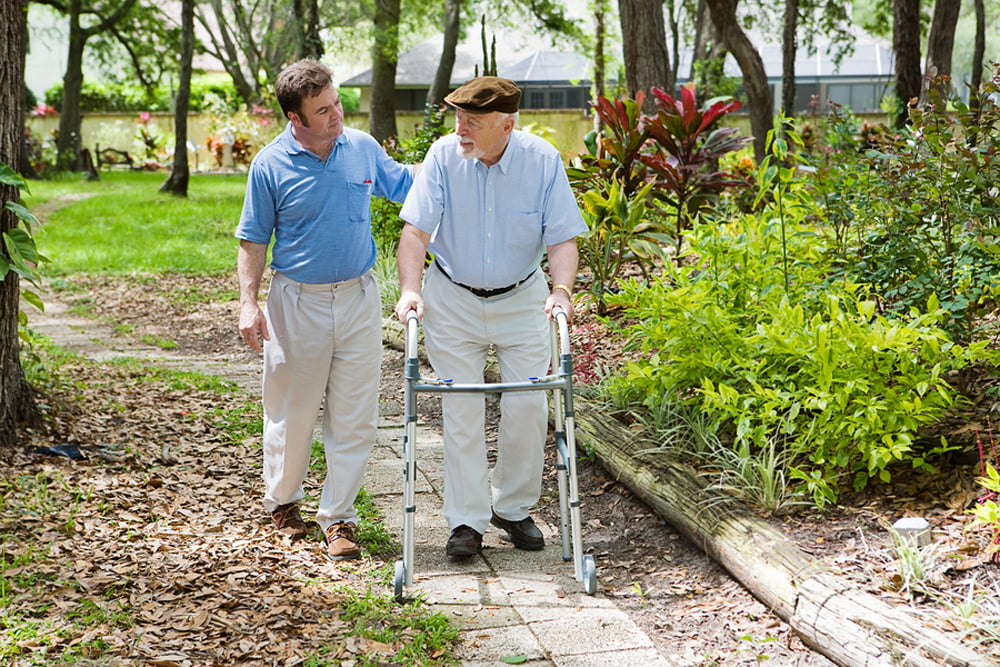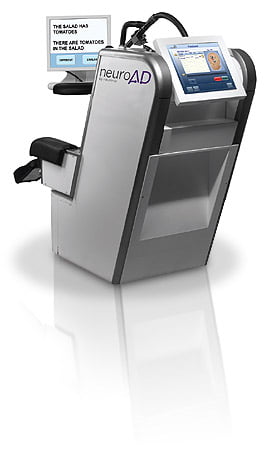Alzheimer’s Disease currently affects between 30-35 million people around the world and according to the Alzheimer’s Disease Facts and Figures Report, this number will double by 2030.
Israeli company Neuronix has developed what may be the most advanced non-invasive treatment for the disease, which is so far incurable.
According to Neuronix, its treatment, which involves magnetic stimulation to the brain, can restore a patient’s cognitive ability to a state comparable to that of two years before the treatment began.
Related articles
- Study: ADHD Medicine Can Reduce Risk Of Falling In The Elderly
- New Study May May Help Lead The Way To Treatment For Neurodegenerative Diseases
“The greatest concern in the medical community”
According to Eyal Baror, CEO of Neuronix, “Alzheimer’s Disease (AD) is one of the greatest concerns in the medical community today. AD is the only disease this widespread for which there is no cure, vaccine, or any other way to stop it.”
According to the Facts and Figures Report, Alzheimer’s is the sixth cause of death globally and the only one in the top 10 that has not diminished, but rather increased by 66 percent between 2000 and 2008.
A real “game changer”
Baror is clear about the fact that neuroAD is not a cure. Nevertheless, he is confident that neuroAD is bringing about “a real change in the battle against AD.”
The neuroAD treatment has the patient sit in a custom Neuronix chair that is fitted with a computer and capable of magnetic stimulation to the brain. The chair first stimulates the relevant brain areas with non-invasive electromagnetic energy. Immediately afterwards the patient is presented with computer based cognitive tasks like matching shapes or completing a sentence.
The neuroAD technology reacts to the patient’s responses and adjusts the difficulty level accordingly.
Sign up for our free weekly newsletter
Subscribe[youtuber youtube=’http://www.youtube.com/watch?v=VbA37rJ1Obc’]
Baror attributes the success of neuroAD to the “dual stimulation” of the magnetic stimulation and cognitive tasks, which strengthen the connection between the nerve cells in the brain that are important for the functions of learning and memory.
He tells NoCamels that “following the intervention the patients are much more independent. They remember a lot more; they have recollections of their families; they can play more with their grandchildren.”
He adds: “One of the patients reported that she can walk the streets again… without somebody escorting her and without the fear of getting lost on the street.”
Current Availability of neuroAD
Neuronix estimates that it will report $1 million in sales in 2013 and $3 million in 2014.The treatment has been approved in Europe and has two commercial clinics in Israel and others in Italy and Germany.
The patent protected technology is still waiting on approval in the US, but Baror is confident that neuroAD will be approved by the conclusion of a multi-center study that terminates at the end of 2014.
Currently the six-week treatment, including five sessions a week and follow-up sessions, costs approximately $6000. neuroAD says its treatment is safe to use in conjunction with existing medications.
“If out of 10 years the patients have left to live we can keep them at home in a relatively mild state of the disease for three, four, five years, that makes a big difference,” says Baror.
Photo: Elderly father and adult son out for a walk in the park by Bigstock
Related posts

Israeli Medical Technologies That Could Change The World

Harnessing Our Own Bodies For Side Effect-Free Weight Loss

Missing Protein Could Unlock Treatment For Aggressive Lung Cancer





Facebook comments